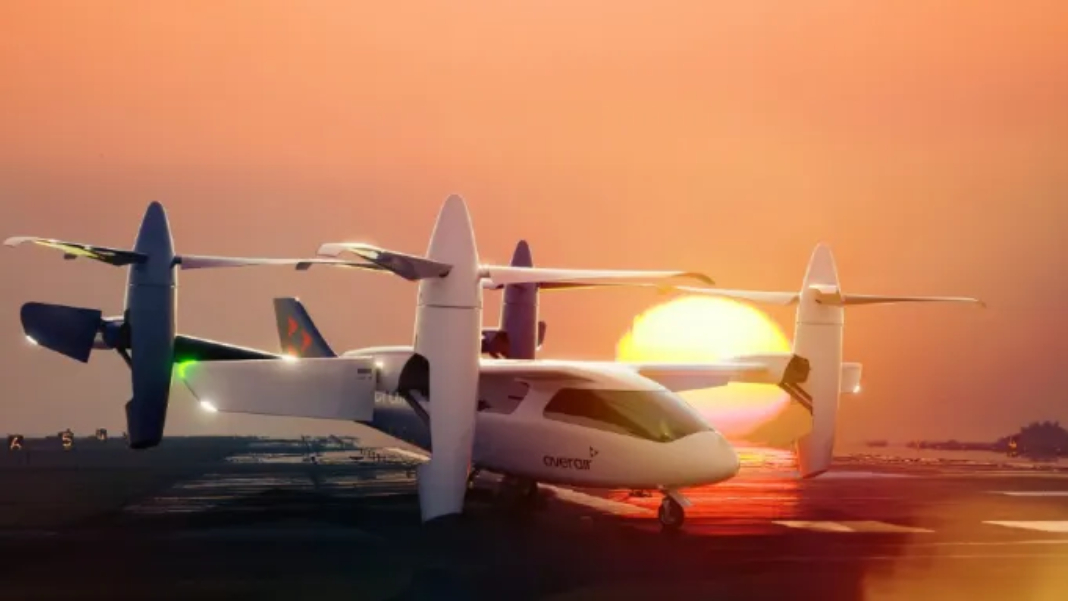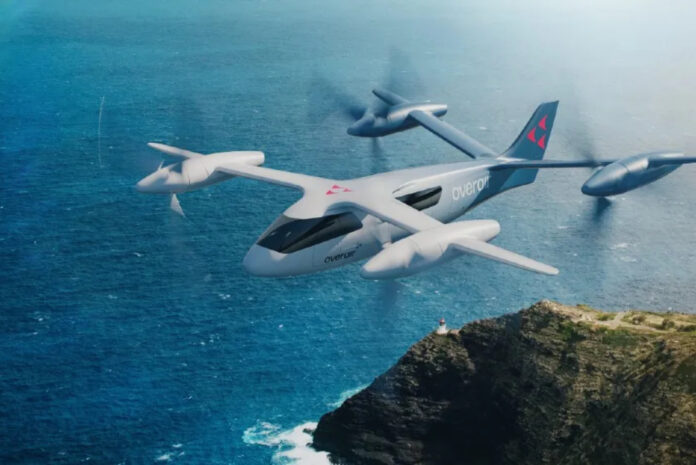Assembly for the five passenger Overair Butterfly eVTOL prototype has completed
The Overair Butterfly eVTOL prototype has been assembled, and the company expects flight testing to proceed early 2024. Overair has stated that the tiltrotor model’s flight testing will validate the Optimum Speed Tilt Rotor (OSTR) and Individual Blade Control (IBC) technology, which it claims will give its vehicle an advantage in terms of performance, dependability, and low noise levels.
The final assembly of the Overair Butterfly eVTOL prototype took place at Overair’s Santa Ana, California, headquarters. There, the engineering team started ground testing at the vehicle level before relocating the aircraft to its flight test facility in Victorville, which is slightly over 80 miles distant.
Four 20-foot-long rotors are integrated into the Butterfly’s design, making it roughly twice as massive as other eVTOL aircrafts in the market. OSTR varies propeller revolutions per minute to increase efficiency across vertical, transitional and forward flight phases. It can also reduce power demand during the hover phase by 60 percent, which is the most energy-consuming part of an eVTOL flight. IBC also reduces vibration and propeller loads, resulting in a smoother, quieter flight.

“Together, these technologies deliver an efficient, quiet, and reliable propulsion system in almost any weather, temperature, or altitude,” stated Overair.
There will be room on the Overair Butterfly eVTOL prototype for five people, the pilot, plus luggage. The zero-emission vehicle will reportedly be the quietest eVTOL available, with a range of 100 miles and a top speed of 200 mph. With the capacity to operate on two of its four propellers, it’s built to have no single point of failure.
In testing their electric air taxis, Overair joins European companies like Volocopter, Lillium, and Vertical Aerospace, as well as other California-based eVTOL competitors Joby and Archer. Many of these companies expect to be certified by the FAA by 2025, at which point they want to begin conducting business.
